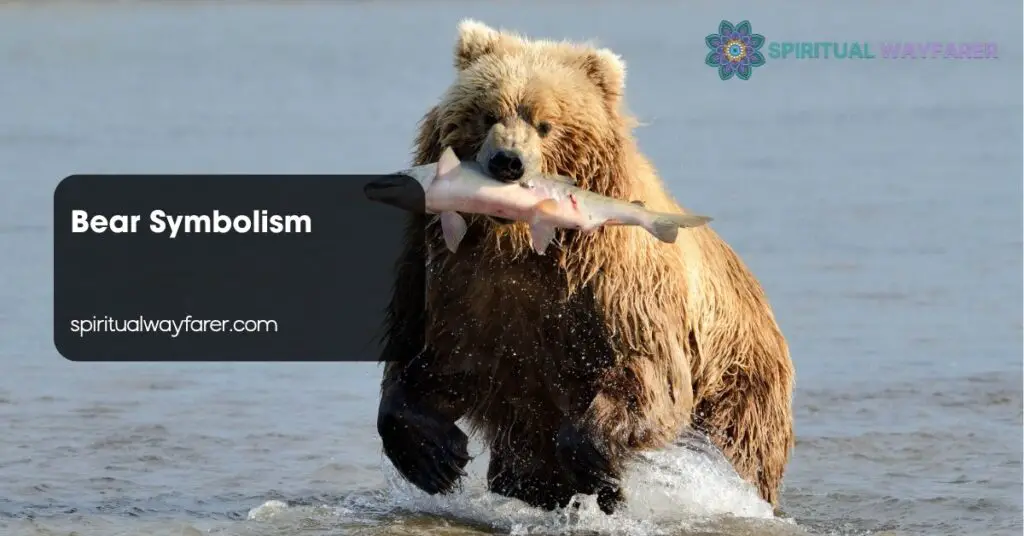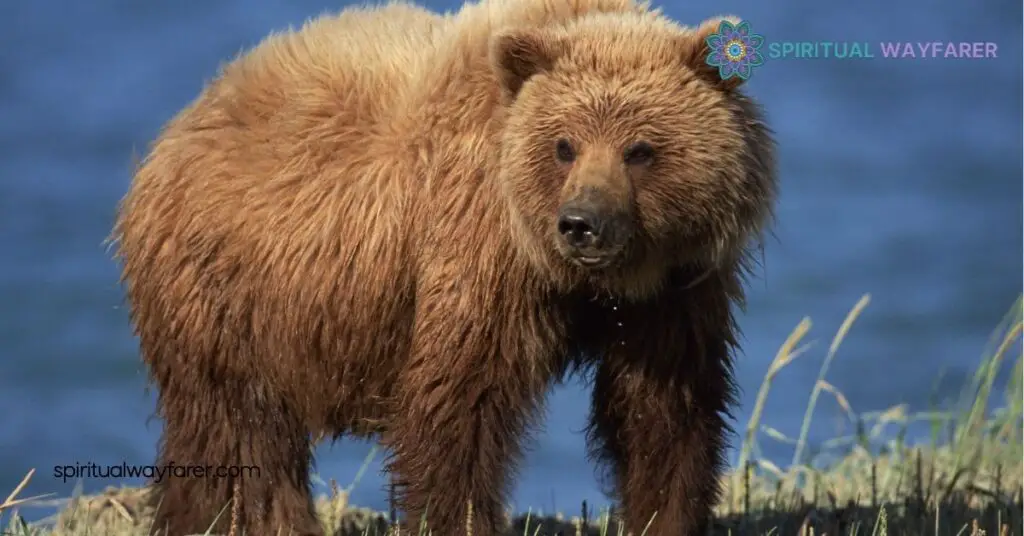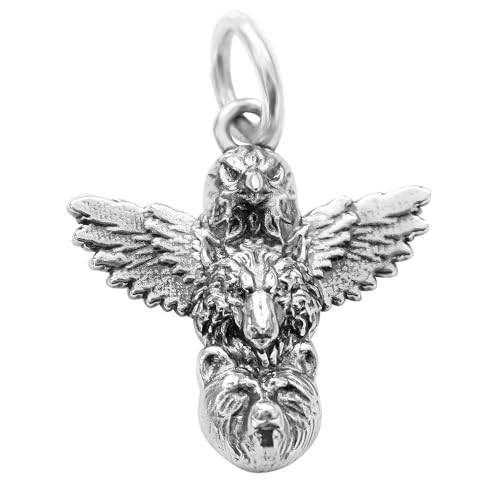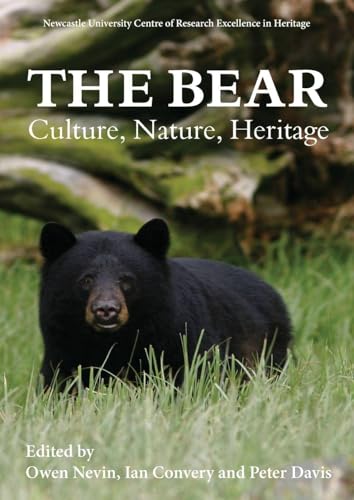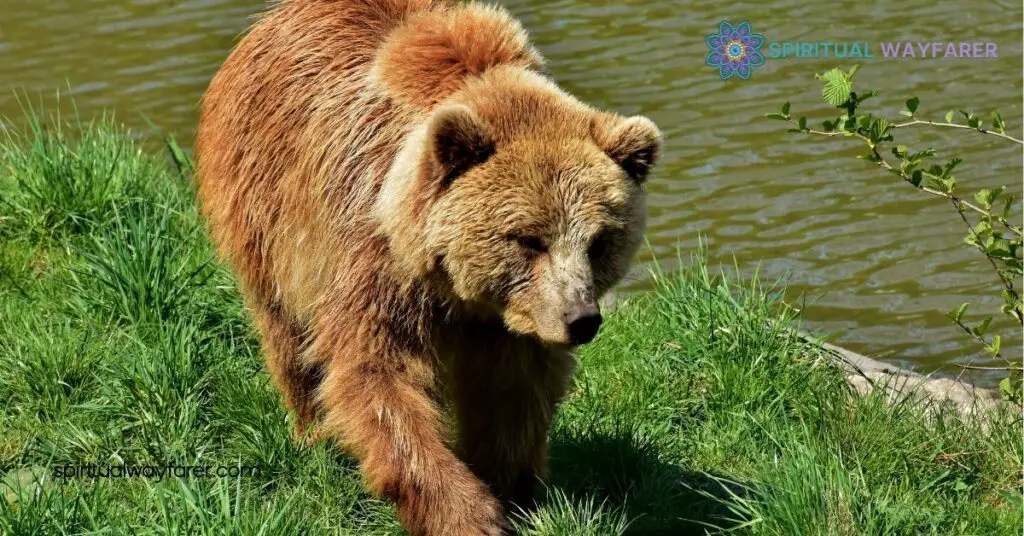Bears have roamed our stories and dreams for centuries, embodying a blend of raw power and gentle wisdom. Their symbolism stretches from ancient myths to the symbols in our everyday lives, offering layers of meaning waiting to be uncovered. We invite you to explore the intriguing industry of bear symbolism with us.
Discover how bears represent not just strength and courage, but also introspection and healing. By understanding these powerful symbols, we can gain valuable perspectives on our own journeys. Let’s embark on this fascinating exploration together and unlock the secrets that bears have guarded for generations.
Cultural Significance of Bear Symbolism
We’re recognizing that bears hold profound cultural meanings across various societies. Our understanding of bears encompasses diverse attributes, serving as essential symbols in many traditions.
Indigenous Perspectives
We see that indigenous cultures revere bears as spiritual guides and protectors. In Native American traditions, bears represent courage, healing, and introspection. Tribal myths frequently feature bears as central figures, illustrating their integral role in storytelling and cultural identity. Totem poles and other indigenous art forms commonly depict bears, signifying strength and resilience.
Ancient Civilizations
We observe that ancient civilizations incorporated bear symbolism into their religious and societal structures. In Greek mythology, Artemis associates with bears, reflecting their fierce yet nurturing nature. Norse mythology regards the bear as a symbol of warrior spirit and power, linking it to gods like Odin. Also, ancient Roman art and literature often feature bears, emphasizing their significance in empire narratives and public spectacles.
Spiritual and Mythological Symbolism
We find bears hold important roles in various spiritual and mythological traditions. These symbols reflect their strength, protection, and primal instincts across cultures.
Bear in Mythology
In Celtic mythology, the bear symbolizes warriorhood, strength, and maternal protection. King Arthur’s name stems from “artos,” meaning “bear-like.” The goddess Artio represents the bear’s protective and nurturing nature.
Norse mythology connects bears with Odin’s berserkers. These elite warriors wore bearskins to channel the bear’s strength and endurance, symbolizing their ability to wield superhuman power in battle.
Greek mythology links the bear to Artemis, the goddess of childbirth and young animals. This association underscores the bear’s role in nurturing and protection within ancient beliefs.
Spiritual Meanings
Spiritually, bears embody introspection and healing. They stand for courage and resilience, inspiring personal growth and self-discovery. Also, we view bears as spiritual guides, offering wisdom and strength during challenging times.
Psychological Interpretations
Bear symbolism provides profound insights into our psychological industry, reflecting core aspects of our inner selves and personal development.
Strength and Protection
We view bears as powerful symbols of strength and protection, representing our inner resilience and personal empowerment. Bears embody our capacity to endure challenges and safeguard our well-being, illustrating the formidable strength that supports us in difficult times.
Healing and Transformation
Bears also signify healing and transformation through their solitary behavior and hibernation cycles. These characteristics emphasize our need for introspection and self-reflection, fostering personal growth and emotional renewal. Embracing bear symbolism encourages us to explore our inner depths, facilitating groundbreaking experiences and holistic healing.
Bear Symbolism in Literature and Media
Literary Depictions
Children’s Literature
In children’s literature, we often see bears embodying cuddliness and friendliness. Examples include Winnie the Pooh, Paddington Bear, and the Berenstain Bears. These characters interact within human-like families, emphasizing themes such as family, friendship, and social behavior. Classic narratives like “Goldilocks and the Three Bears” and “The Brown Bear of Norway” position bears in central roles, highlighting their anthropomorphic traits and interactions with humans.
Folklore and Mythology
We recognize bear symbolism across various folklore and mythological traditions. In Latvian folklore, the legendary hero Lāčplēsis, known as the Bear-slayer, symbolizes strength and a profound connection to bears. His story incorporates elements of superhuman strength derived from bear attributes, including bear ears, and a maternal lineage connected to a she-bear.
Conclusion
Bear symbolism offers us a window into understanding our own strengths and vulnerabilities. By embracing the bear’s dual nature, we can navigate our personal journeys with both courage and compassion.
Exploring these symbols deepens our connection to cultural traditions and spiritual insights. Bears inspire us to seek balance between power and gentleness in our daily lives.
As we continue to uncover the meanings behind bear symbolism we empower ourselves to grow and transform. Let the bear guide us in our search for resilience and self-discovery.
Frequently Asked Questions
What does bear symbolism represent?
Bear symbolism embodies both strength and gentleness. Historically, bears signify power, courage, and resilience, while also representing introspection, healing, and nurturing qualities. This duality allows bears to serve as powerful symbols in various cultural, spiritual, and psychological contexts.
How do indigenous cultures view bears?
Indigenous cultures revere bears as spiritual guides and protectors. In Native American traditions, bears play significant roles in myths and storytelling, symbolizing themes like courage, healing, and guardianship. They are often seen as powerful totems that offer wisdom and guidance.
What is the significance of bears in mythology?
In mythology, bears are linked to warrior spirit, maternal protection, and resilience. For example, Norse mythology associates bears with Odin’s berserkers, while Greek mythology connects them to Artemis, highlighting their nurturing side. Celtic myths also view bears as symbols of strength and protection.
How is bear symbolism portrayed in literature?
In literature, bears often symbolize cuddliness, friendliness, and family values. Characters like Winnie the Pooh and Paddington Bear emphasize themes of friendship and social behavior. Stories like “Goldilocks and the Three Bears” showcase bears’ anthropomorphic traits and their interactions with humans.
What are the psychological interpretations of bear symbolism?
Psychologically, bears represent inner strength, resilience, and the capacity to overcome challenges. Their solitary nature and hibernation cycles symbolize healing, transformation, and the importance of introspection. Embracing bear symbolism can foster personal growth and emotional renewal.
How do ancient civilizations incorporate bear symbolism?
Ancient civilizations like the Greeks and Norse integrated bear symbolism into their religious and societal frameworks. Bears were associated with themes of courage, warrior spirit, and nurturing qualities, reflecting their importance in rituals, mythology, and cultural identity.
What role do bears play in personal empowerment?
Bears symbolize courage and resilience, inspiring individuals to explore their inner strengths and face challenges with determination. They encourage introspection and self-discovery, facilitating personal growth and holistic healing by representing the balance between power and gentleness.
Can you give examples of bear symbolism in folklore?
In folklore, bears are often portrayed as powerful and wise creatures. The Latvian hero Lāčplēsis, known as the Bear-slayer, symbolizes strength and a deep connection to bears. Such stories highlight the enduring legacy of bear symbolism across different cultures and their mythological significance.
Why are bears important in cultural identity?
Bears play a crucial role in cultural identity by embodying values like strength, protection, and healing. Their symbolism is deeply ingrained in myths, traditions, and storytelling, reflecting the collective beliefs and values of societies that honor and respect these majestic creatures.
How do bears inspire personal growth?
Bears inspire personal growth by symbolizing resilience, introspection, and transformation. Their behaviors, such as hibernation and solitary living, encourage individuals to engage in self-reflection and emotional renewal, fostering a deeper understanding of themselves and promoting holistic healing.

